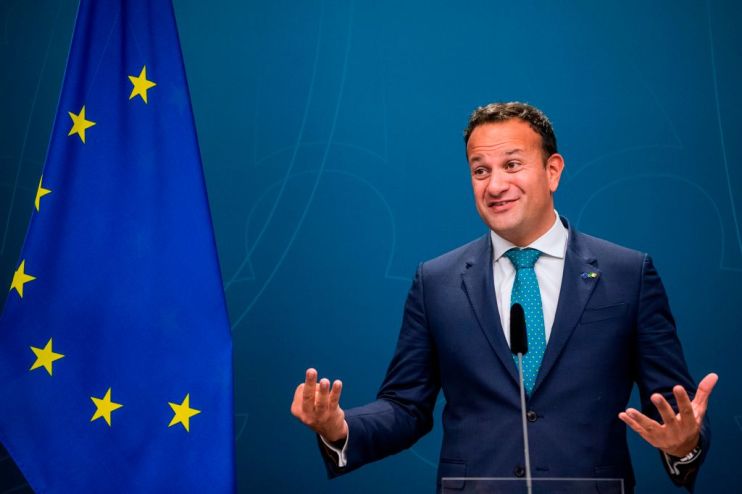Downing Street: Anti-Brexit countries will ‘go to bottom of queue’ in future talks

Countries that support a delay to Brexit “will go to the bottom of the queue” when negotiating the UK’s future relationship, a source within Downing Street has said.
As tensions rise ahead of the weekend – viewed on both sides as a critical point for determining whether a deal can be struck in time – Number 10 has stressed any stalling for time by member states will backfire.
In what appears to be a veiled attack on Dublin, a source told the Spectator: “We will make clear privately and publicly that countries which oppose delay will go the front of the queue for future cooperation — cooperation on things both within and outside EU competences. Those who support delay will go to the bottom of the queue… Supporting delay will be seen by this government as hostile interference in domestic politics, and over half of the public will agree with us.”
The source indicated that security and defence cooperation would “inevitably” be affected in this case.
Last week Irish Taoiseach Leo Varadkar attacked the UK’s proposals, saying they did not “form the basis for deeper negotiations”.
The Number 10 source said Varadkar had “gone cold” since the Benn Act, which stipulates that the Prime Minister must seek an extension if no deal is agreed by 19 October.
“It’s clear he wants to gamble on a second referendum and that he’s encouraging [EU negotiator Michel] Barnier to stick to the line that the UK cannot leave the EU without leaving Northern Ireland behind,” he added.
“There are quite a few people in Paris and Berlin who would like to discuss our offer but [German Chancellor Angela] Merkel and [French President Emmanuel] Macron won’t push Barnier unless Ireland says it wants to negotiate.”
The source stressed that, unlike the previous government, Downing Street would not back down and threatened “all sorts of things to scupper delay”, to avoid having to seek an extension.
Last month City A.M. revealed that one favoured option is to invoke EU law, which ministers believe trumps British law.
But the memo has gone down badly with some in Westminster, including Northern Ireland secretary Julian Smith, who disavowed the implied threat to security.
It was also attacked by former Cabinet minister Amber Rudd, who described it as “angry and desperate”.
Yesterday City A.M. reported that both sides believed a deal must be struck by the weekend – or Monday (14 October) at the latest, ahead of the European Council, which begins on 17 October.
Prime Minister Boris Johnson has spoken to several of the key players, including Merkel, Macron, Jean-Claude Juncker, Donald Tusk and a host of other EU27 leaders.
He has also spoken to Varadkar, and is thought to be eager to arrange a face-to-face meeting, but so far nothing has been scheduled.
Main image: Getty